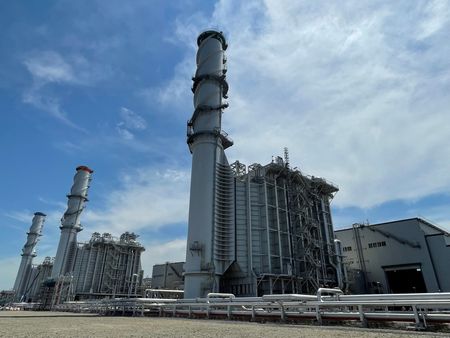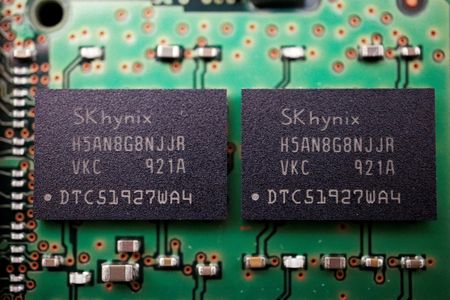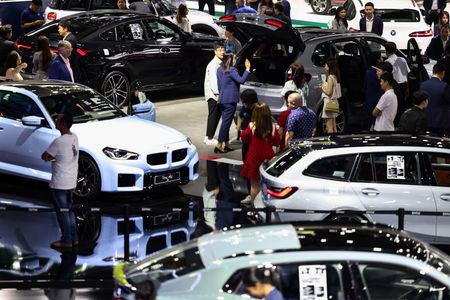By David Shepardson
NEW YORK (Reuters) – Automakers face “daunting” government regulations to sell half of new vehicles by 2030 as electric or plug-in hybrids despite a U.S. decision to soften the final rules over its initial, tougher proposal, a top industry official said on Wednesday.
Under all compliance scenarios, automakers will need to sell at least 50% plug-in and EVs by 2030 to meet regulatory targets, according to the Environmental Protection Agency. Under the initial proposal, they were projected to need to sell 60% EVs by 2030 and 68% by 2032.
John Bozzella, who heads the Alliance for Automotive Innovation trade group, said the revised rules represent “very ambitious and daunting targets. There’s no sugarcoating that.”
After heavy lobbying by the automakers that called the EPA’s initial April 2023 proposal “neither reasonable nor achievable,” the 2027-2032 EPA vehicle emissions rules dramatically soften yearly requirements, dropping its U.S. electric vehicle adoption target from 67% by 2032 to as little as 35%.
Bozzella had urged the Biden administration to make changes.
“I said, ‘You need to slow the pace of the rules.’ And they did,” Bozzella said. “Why? Because they saw what was happening in the market: a choppy EV retail environment” along with inadequate public charging stations and not yet mature EV supply chains.
The EPA rule cuts vehicle emissions by 49% by 2032 compared with 56% under the initial proposal.
Pablo Di Si, head of Volkswagen’s North American business, called the 2032 requirements “extremely tough.” He said the automaker will not change “one product launch” as a result of the softer rules, which will “not change the end game for the U.S. and for VW,” and will continue with EV rollout plans.
Hyundai Global Chief Operating Officer Jose Munoz said on Wednesday that the EPA revised standards are “a little bit less demanding but is still challenging.” The company is spending $12.6 billion to ramp up EV and battery production.
Toyota Motor called the initial EPA proposal “extreme and outside historical norms.” Jack Hollis, president of Toyota Motor Sales USA, said the company does not plan to change its product portfolio depending on who wins the White House in November.
President Joe Biden, a Democrat, strongly supports electric and hybrid vehicles as part of an effort to fight climate change. His main opponent, Republican former President Donald Trump, has criticized Biden’s backing of EVs, saying they will destroy the U.S. auto industry and destroy jobs.
“It just changes literally the regulations and the timelines to get to where we’re going to end up going anyway,” Hollis said at an auto show forum.
(Reporting by David Shepardson)











